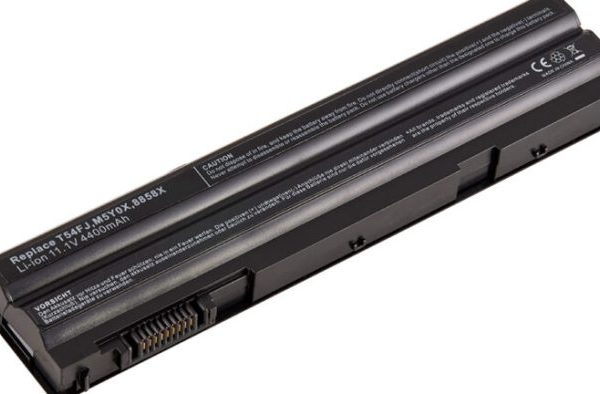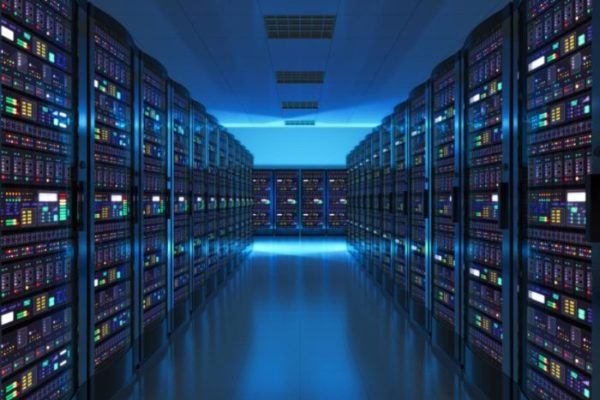When it comes to programming, having the right laptop can make all the difference. As a programmer, you need a laptop that is reliable, efficient, and fast. However, with so many options available in the market, it can be difficult to determine which laptop is the best fit for you. One of the most debated topics in the programming community is whether to buy a MacBook or a Windows laptop for programming. In this article, we’ll delve deeper into this debate, weigh the pros and cons of each option, and help you make an informed decision.
Comparison of Hardware
One of the main considerations in choosing a laptop for programming is the hardware. Both MacBook and Windows laptops have their own unique specifications and differences that can impact programming performance.
Processor:
MacBook laptops use Apple’s proprietary processors, such as the M1 or M2 chips, which offer impressive speed and performance. On the other hand, Windows laptops typically use Intel or AMD processors, which also offer fast performance, but may not be as optimized for specific tasks as Apple’s processors.
RAM:
MacBook laptops tend to have lower RAM capacity compared to Windows laptops, with the current models ranging from 8GB to 16GB. Windows laptops, on the other hand, can have up to 32GB or even 64GB of RAM, which is important for running multiple applications and tasks simultaneously.
Storage:
Both MacBook and Windows laptops offer solid-state drives (SSDs) for storage, which are faster and more reliable than traditional hard drives. However, MacBook laptops typically have less storage capacity than Windows laptops, with the current models ranging from 256GB to 2TB. Windows laptops, on the other hand, can have up to 4TB of storage or more.
Graphics Card:
MacBook laptops typically come with integrated graphics cards, which are suitable for most programming tasks but may not be ideal for graphics-intensive tasks such as gaming or video editing. Windows laptops, on the other hand, can come with dedicated graphics cards, which offer better performance for graphics-intensive tasks.
It is important to consider these hardware differences when choosing a laptop for programming, as they can impact the speed and performance of your work.
Comparison of Software
There are some notable differences in terms of software between MacBook and Windows laptops that can affect programming performance. Here are some key points to consider:
- Operating System: MacBooks run on macOS, while Windows laptops run on Windows OS. The choice between these two depends on personal preference and the development environment you plan to use.
- Development Tools: MacBooks come with Xcode pre-installed, which is a powerful and comprehensive IDE for programming on macOS. However, there are plenty of other development tools available for macOS as well, such as Visual Studio Code and JetBrains.
On the other hand, Windows laptops have a wide range of development tools available, including Visual Studio, PyCharm, and Eclipse. In addition, there are plenty of open-source tools available for Windows as well.
- Compatibility: MacBooks are generally better suited for developing iOS applications, as Xcode is an exclusive tool available for macOS. However, Windows laptops are generally better for developing applications for Windows and Android.
- Virtualization: Both macOS and Windows can run virtualization software such as VirtualBox or VMware. However, running Windows on a MacBook may require more resources than running macOS on a Windows laptop.
- Integration with other devices: MacBooks are known for their seamless integration with other Apple devices, such as iPhones and iPads. However, Windows laptops can also integrate well with other devices, such as Android smartphones.
It’s important to consider the software you plan to use for programming and ensure that it’s compatible with the operating system and hardware you choose.
User Experience
When it comes to programming, user experience can play a significant role in productivity and comfort. Here’s a comparison of the user experience on MacBook and Windows laptops:
- Keyboard: MacBook keyboards are known for their butterfly mechanism, which provides a comfortable typing experience with a low profile. In contrast, Windows laptops come with a variety of keyboard types and can range from excellent to subpar. Some Windows laptops come with keyboards that have good key travel and tactile feedback, making typing a comfortable experience.
- Touchpad: MacBooks come with a large, responsive touchpad that supports gestures such as pinch-to-zoom and two-finger scrolling. Windows laptops also have touchpads that support these gestures, but they may not be as smooth and responsive as those on a MacBook.
- Screen Quality: MacBooks have a reputation for having high-quality displays, with accurate colors and high resolution. Windows laptops also come with high-quality displays, but the quality can vary depending on the manufacturer and model. Some Windows laptops may have issues such as color accuracy, brightness, or resolution.
Overall, MacBook laptops have a more consistent and polished user experience, while Windows laptops can vary depending on the manufacturer and model. However, some users may prefer the flexibility and customization options of Windows laptops.
The user experience is a crucial factor to consider when choosing between MacBook and Windows laptops for programming. It’s essential to select a laptop that provides a comfortable typing experience, smooth touchpad performance, and a high-quality display.
Cost
When it comes to buying a laptop for programming, cost is an important factor to consider. In this section, we will compare the cost of MacBook and Windows laptops and their value for money.
MacBooks are known to be more expensive than Windows laptops, with prices ranging from $999 to $2,799 for the latest models. On the other hand, Windows laptops offer a wider range of price options, starting from as low as $300 to as high as $3,000 for high-end models.
However, it’s important to note that the cost of a laptop depends on various factors such as hardware, software, and build quality. MacBooks are known for their premium build quality and sleek design, while some Windows laptops may compromise on build quality to offer lower prices.
When considering value for money, MacBooks are often considered to be worth the investment due to their high-end hardware and software features. The macOS operating system is known for its stability and performance, and Apple’s proprietary software such as Xcode and Final Cut Pro are popular among developers and content creators.
Windows laptops, on the other hand, offer a wider range of software options and are often preferred by gamers and those who need to use specific software that is not available on macOS. Additionally, Windows laptops offer more hardware customization options, allowing users to choose their preferred hardware specifications and features.
Other Considerations
When choosing a laptop for programming, it’s important to consider factors beyond just hardware and software. Here are some other important considerations:
Portability:
If you travel frequently or work from different locations, portability may be an important factor for you. MacBook laptops are generally thinner and lighter than most Windows laptops, making them easier to carry around.
Battery life: If you need to work on your laptop for extended periods without access to a power outlet, battery life is crucial. MacBooks are known for their long battery life, with some models lasting up to 12 hours or more. However, many Windows laptops also offer good battery life, so this may not be a significant factor for everyone.
Durability:
If you’re rough on your devices or expect to use your laptop in challenging environments, durability may be an important consideration. MacBooks are known for their sturdy build quality, with aluminum bodies that can withstand a fair amount of abuse. However, some Windows laptops also offer ruggedized designs and durable materials.
Display:
The quality of your laptop’s display can impact your overall experience and productivity. MacBooks are known for their high-quality Retina displays, which offer excellent color accuracy and sharpness. However, some Windows laptops also offer high-quality displays, and there are many external monitors available that can enhance your workspace.
Customizability:
Some programmers prefer to be able to customize their hardware and software to their liking. MacBooks are generally more limited in terms of customization options, as Apple tightly controls the hardware and software ecosystem. However, Windows laptops offer a wide range of customization options, and you can often upgrade components like RAM and storage.
When comparing MacBook and Windows laptops in these categories, it’s important to consider your individual needs and preferences. For example, if you value portability above all else, a MacBook may be the best choice for you. However, if you need a highly customizable machine or require a rugged design, a Windows laptop may be a better fit. Ultimately, the best laptop for programming is one that meets your specific requirements and enables you to work efficiently and comfortably.
Conclusion
Choosing between a MacBook and a Windows laptop for programming can be a difficult decision. Both have their advantages and disadvantages, and the best option depends on your personal preferences and needs.
MacBooks are known for their sleek design, user-friendly interface, and reliable performance. They also come with a wide range of pre-installed software and applications, making it easier to get started with programming. On the other hand, Windows laptops offer greater flexibility, with a wider range of hardware options and compatibility with a broader range of programming languages.
Ultimately, the choice between a MacBook and a Windows laptop boils down to your individual preferences and needs as a programmer. Whichever option you choose, be sure to consider factors such as performance, software compatibility, and ease of use. With the right laptop at your fingertips, you’ll be well on your way to becoming a successful programmer.





